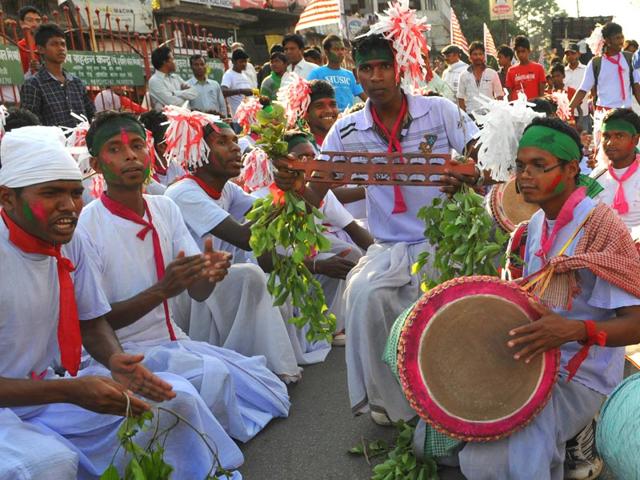Jharkhand stuck in domicile tangle, experts divided
Opinion appears sharply divided over whether a contentious domicile policy for Jharkhand would benefit its largely impoverished indigenous, tribal population or only end up destroying the state’s delicate social fabric.
Opinion appears sharply divided over whether a contentious domicile policy for Jharkhand would benefit its largely impoverished indigenous, tribal population or only end up destroying the state’s delicate social fabric.

The BJP-led government is pushing for a policy aimed at reserving Grade 3 and 4 jobs for locals, but the move has slowed because of differences with the Opposition on the question of who would qualify as original residents of the state.
Even political and social experts do not seem to agree on the benefits of a domicile policy for Jharkhand.
“In cases of bifurcation of states on language basis, the privileged people of mother states, for most of whom the new state language may not be their mother tongue, would automatically be on the back foot after state formation,” said Nirmal Sengupta, an expert on Jharkhand who has edited a book ‘Fourth World Dynamics: Jharkhand’.
“But non-linguistic states like Jharkhand, Uttarakhand, Chhattisgarh and Telangana do not have that advantage. They need a domicile policy to identify and exclude the erstwhile privileged.”
Anant Kumar, an assistant professor of the Xavier’s Institute of Social Service in Ranchi, differs.
“Politicians bring this issue (domicile policy) time and again for political mileage. They have used this issue to divide people. Earlier they have done it in the name of a separate state; now they are dividing people in the name of domicile.”
Although Jharkhand came into being in the same year as Chhattisgarh and Uttarakhand, it still doesn’t have a policy on job reservations for local residents, which is impeding recruitment in all government services.
When Babulal Marandi, the first chief minister of Jharkhand formed in November 2000, proposed a domicile policy in 2001, it triggered clashes in which at least five people were killed.
Marandi had based his domicile policy on a 1982 notification of undivided Bihar that called for preference to local people for recruitment in factories and workshops. The notification, a fallout of discontent among local people over the cornering of unskilled jobs in industrial units by people from north Bihar and UP, did not prescribe affirmative action.
The Marandi government’s domicile policy earmarked 1932 land records as the basis to decide who was the ‘moolvasi’ or original resident. But that criterion has been challenged.
“Two criteria for moolvasi are desirable as landless scheduled castes and urban artisans do not have khatiyans,” said Sengupta, a former director of the Madras Institute of Development Studies.
A committee, formed under the Hemant Soren government to formulate domicile criteria, has recommended that non-khatiyanis (without land records) need to get their gram sabhas certify that their families have been residents of the state for the last three generations or more. On the domicile dispute in Uttarakhand, also formed in 2000, the Nainital high court fixed 1985 as the cut-off and it was upheld by the Supreme Court in March 2014.
“These judgments dispel the notion that local domicile concept is fallacious in India because every citizen has the right to move freely, reside and settle in any part of the country,” said Sengupta, adding that “ The Jharkhand domicile tangle should reach the Supreme Court as early as possible for a verdict acceptable to all.”
Anant Kumar, however, said announcement of a domicile policy for Jharkhand would be a “historic mistake” and do injustice with a majority of people in the state.
“Once a domicile policy is declared, people with vested interests will start a movement demanding that all government jobs and benefits be reserved for people with domicile status,” said Kumar, emphasising that good governance and development would ensure justice to the marginalised and excluded groups.





